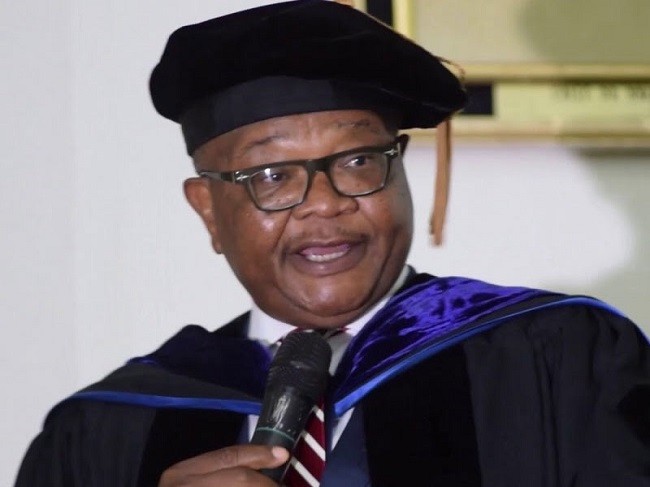Don Says Nigerian Varsity Engineering Curriculum Is Archaic, Laboratories Underfunded
A renowned Economist and development expert, Prof Osita Ogbu, says there’s no single world-class engineering laboratory in any university in Nigeria.
The professor of Economics, who spoke at the 11th Convocation Lecture of the National Open University of Nigeria (NOUN), said the curriculum is outdated and there is no inbuilt relevant practical training that aligns theory to practice.
Speaking the theme, ‘The Fourth industrial revolution and the Challenge of Poverty Reduction in Nigeria’, he said Policymakers seeking foreign investments must understand that made in Nigeria does not mean made by Nigerians.
While noting that with the UNDP report that only one in six African college students (17%) will graduate with a Science, Technology, Engineering or Mathematics (STEM) degree, he said most of the recent graduates are not well placed to take advantage of the jobs and technologies of the future.

“The WEF report indicates that human capital optimization – education, skills development, and deployment throughout the life-course- in Nigeria is 49 percent when the global average is 65, and Mauritius (65), Ghana (64), and South Africa (63).”
The Don said to understand Nigeria’s state of preparedness for the 4th Industrial revolution, the Global Innovation Index (GIl), an annual ranking of nations innovation capabilities using about 80 indicators, showed that out of the 131 countries around the world, Nigeria ranked 117 in 2020, 114 in 2019 and 118 in 2018.
“In terms of innovative output, it ranked 121 in 2020, a rank lower than its ranking of 105 in 2019 and 115 in 2018. Nigeria ranks 25 among the 29 lower middle income group economies and 15th among the26th economies in Sub-Saharan Africa. Overall, Nigeria has not made progress,” he said.
Prof Ogbu said preparing Nigeria for the fourth industrial revolution will require re-thinking the entire educational system with clear roles for governments at all levels and the private sector and it requires a budgetary provision that signals an acknowledgment of the significance of the sector in socio-economic and political development.
While noting that education systems across Africa are archaic and severely underfunded, he said, “Incentives should be provided to encourage students to enroll in STEM degrees and to pursue advanced and research degrees in these areas.”
“Innovation is required for growth but this innovation must be targeted to addressing the high unemployment rate among the youth, in increasing the skills, capabilities of the poor. And we must also increase, in a very significant way, the domestic content (inputs) of all our production processes in order to increase the job content,” he said.
He further said: “We need to act fast. The bias of new technologies towards capital will disadvantage Nigeria as a low-skilled labor surplus economy. Jobs and better-paying jobs should be the currency of any policy initiatives if poverty reduction on a sustained basis is going to be achieved.”
In his remark, the Vice Chancellor of NOUN, Prof Olufemi Peters, said the choice of the topic is apt as it addresses contemporary issues that the country is currently having.
He thanked Prof Ogbu for delivering an insightful lecture, saying NOUN is happy about the revelations made.
#Don #Engineering #Laboratories
Source: dailytrust





